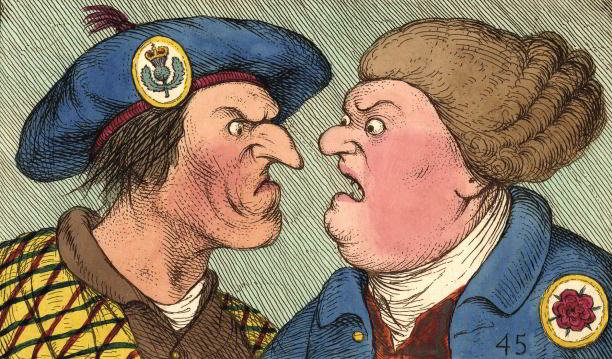We must choose our words carefully
Letter:- Western Daily Press (Bristol, England) – Friday, August 15, 2014
I have just watched Andrew Neill’s programme on the BBC about the implications of Scottish independence for “the Rest of the UK” I am not a lawyer, but the constitutional legal position has been explained to me by a solicitor with expertise in constitutional law, and it seems fairly straightforward.
Wales and England were united in a 16th-century Act of Parliament under which, constitutionally, Wales became part of England.
The Kingdom of England (E) and the Kingdom of Scotland (S) were united by the Act of Union of 1707 as the United Kingdom of Great Britain, (G), with a single parliament, (the British Parliament) in Westminster.
The United Kingdom of Great Britain became the United Kingdom of Great Britain and Ireland through a further Act of Union in 1801. With the partition of Ireland in 1922, we were left with the United Kingdom of Great Britain & Northern Ireland.
For Scotland to leave the UK, it would be necessary to repeal the 1707 Act of Union. From the moment of that legislation’s receipt of Royal Assent, there would be no more United Kingdom. (E+S=G ergo G-S=E.) The British Parliament would have no constitutional validity and the British Government would also cease to exist.
Since the union of Ireland, in 1801, was with Great Britain, once Great Britain ceases to exist, so does any union with it.
So, any talk of “the Rest of the UK” is codswallop.
Scottish independence (bring it on!) will mean the dissolution of the United Kingdom and any negotiation of the terms of exit will have to be undertaken by representatives of England, as the former British Government will have ceased to have any mandate.
Clive Lavelle
Weston-super-Mare English Democrats

